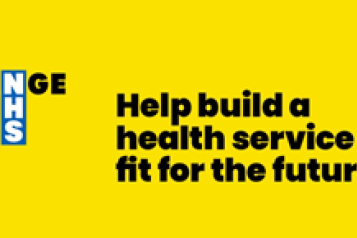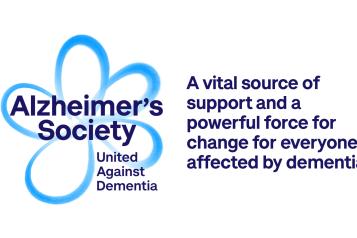Information about high blood pressure
What is blood pressure?
Blood pressure is the pressure of blood in your arteries – the vessels that carry your blood from your heart to your brain and the rest of your body. You need a certain amount of pressure to get the blood moving around your body.
Your blood pressure naturally goes up and down throughout the day and night, and it’s normal for it to go up while you’re moving about. It’s when your overall blood pressure is consistently high, even when you are resting, that you need to do something about it.
High blood pressure
High blood pressure, which is also known as hypertension, is one of the biggest known causes of disability and early death in the UK.
High blood pressure makes arteries less flexible and damages the artery walls. This makes it easier for fatty deposits to build up in the arteries, which limits blood and oxygen supply and can lead to heart attack and stroke. If left untreated it can also cause kidney failure, heart failure, problems with your sight, and vascular dementia.
One in ten people in Southwark have high blood pressure but only half know about it. High blood pressure is not something that you can normally feel or notice. The only way to know whether you have high blood pressure is to get it measured.
Measuring your blood pressure
When you have your blood pressure measured, the reading is given as two numbers. For example, your reading might be 140/90 mmHg* and you'll be told something like '140 over 90'.
- The first number is the highest level of your blood pressure. It's the pressure when your heart beats and contracts to pump blood through your arteries. This is known as systolic pressure.
- The second number is the lowest level of your blood pressure. It's the pressure when your heart relaxes between beats. This is known as diastolic pressure.
*mmHg is a unit for measuring blood pressure and it is short for millimetres of mercury.
What do the readings mean?
Unless your doctor tells you otherwise, your blood pressure should be below 140/90. If you have heart and circulatory disease (such as coronary heart disease or stroke) or diabetes or kidney disease, then your blood pressure should be below 130/80.
- If your blood pressure is above 140/90 this indicates that you may have high blood pressure (hypertension) and you should speak to your GP. Further checks would normally be needed to confirm this.
- If your blood pressure is 180/110 or higher then this indicates severe hypertension.
- If your blood pressure is below 140/90 (or 130/80 if you have the health conditions listed above) then your blood pressure is normal.
- If your blood pressure is less than 90/60 then you have low blood pressure. Low blood pressure doesn't necessarily mean there is a problem. People with low blood pressure tend to live longer than people with high, or even normal, blood pressure. Find out more about low blood pressure.
The British Heart Foundation has produced a great leaflet to explain blood pressure.
How can I get my blood pressure measured?
You can ask for a blood pressure check. You do not have to wait to be offered one.
- You can get your blood pressure measured at some pharmacies. If you have a favourite pharmacy you can ask them if they offer blood pressure checks. If they don't they will be able to point you in the direction of another pharmacy that does. Or you can contact Healthwatch for a list of all the pharmacies in Islington that provide blood pressure checks.
- At your GP surgery – by a GP, practice nurse, healthcare assistant, or self-service machine
- At health events in the community
- By getting an NHS Health Check. A health check is a 25-minute appointment at your GP surgery. They will check your blood pressure; collect information on your height, weight, smoking status, physical activity levels, and diet; and order and review your blood test for cholesterol.
- Test it yourself. You can buy a blood pressure monitor for £20 and measure it yourself at home. The British Heart Foundation website has guidance on home monitoring. Blood Pressure UK has produced a helpful leaflet on measuring your blood pressure at home.
How do I get an NHS health check?
- If you’re aged 40 – 74, and you don't already have yearly health checks for existing health conditions, you should receive a letter from your GP surgery inviting you for a free health check every 5 years.
- If you are eligible, you can also call your GP surgery to book your health check.
Why is my blood pressure high?
Most people get high blood pressure because of their diet, lifestyle, or because they have a medical condition. Sometimes high blood pressure runs in families and can also worsen with age. It is also more common if you are of black African or black Caribbean descent.
Even in these cases, you can still improve your blood pressure by changing your diet and being active.
How to reduce your blood pressure
You can reduce your chances of getting high blood pressure. Here are some of
the ways to keep your blood pressure under control:
- Eat less salt and more fruit and vegetables
- Cut down on the amount of alcohol you drink
- Be more active
- If you are overweight, try to lose weight
Free resources to help you be more active
Being active is important for keeping a healthy body and mind at every stage of life. It's a great way of managing your blood pressure. The Everyone Health website has lots of ideas for things you can do and lists local resources including walking groups and exercise classes. The Everyone Active website also has information about free gym and swim facilities in six local leisure centres.
Six top tips
The British Heart Foundation has some great suggestions to help reduce high blood pressure, or help to control it if you’ve already been diagnosed with the condition.

